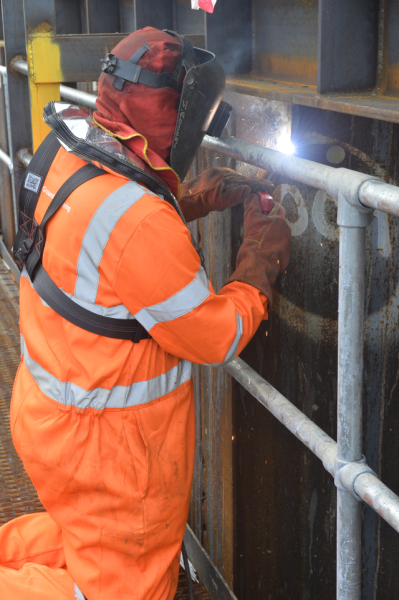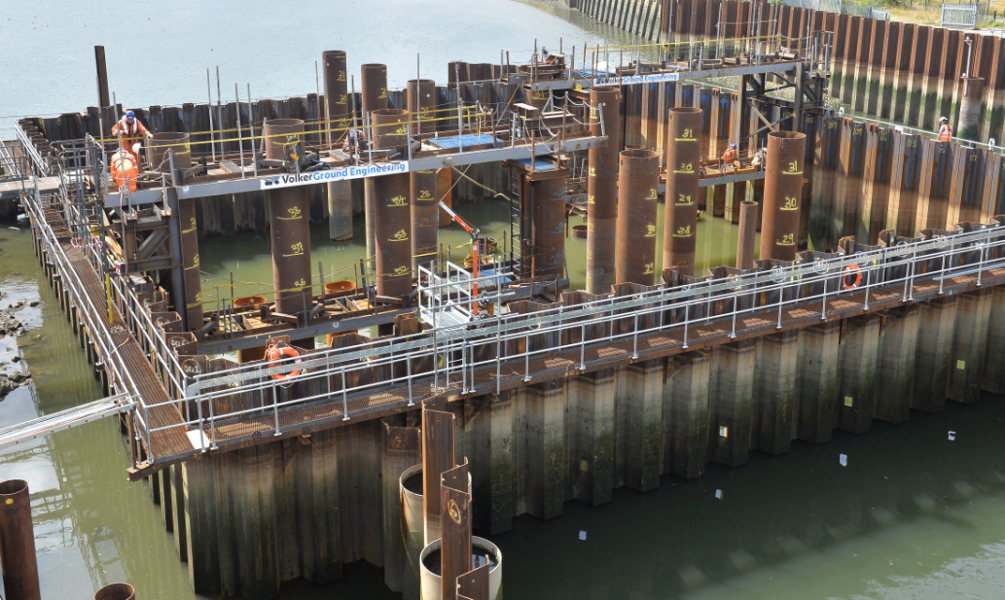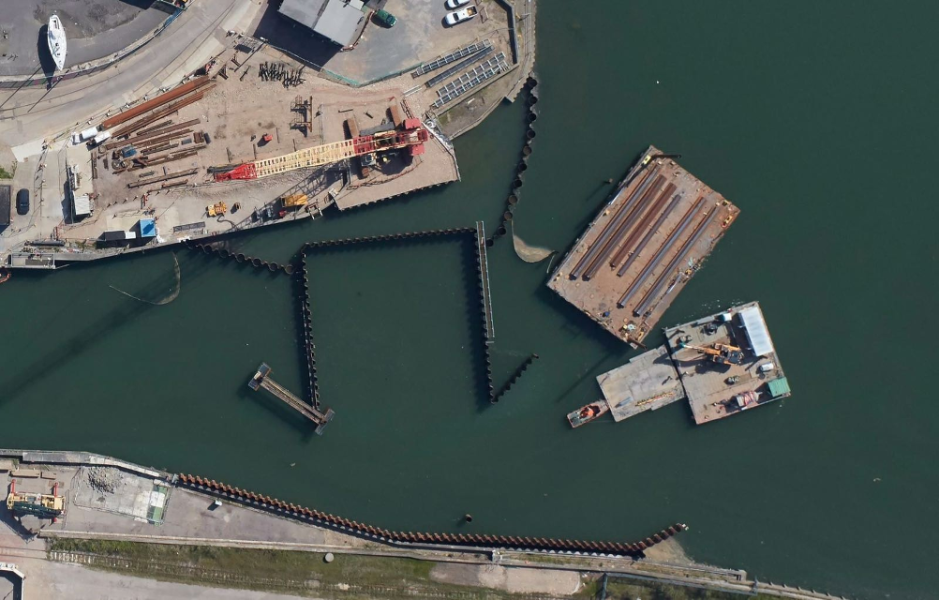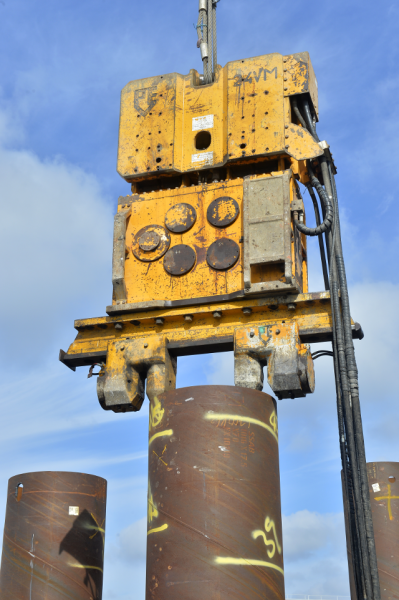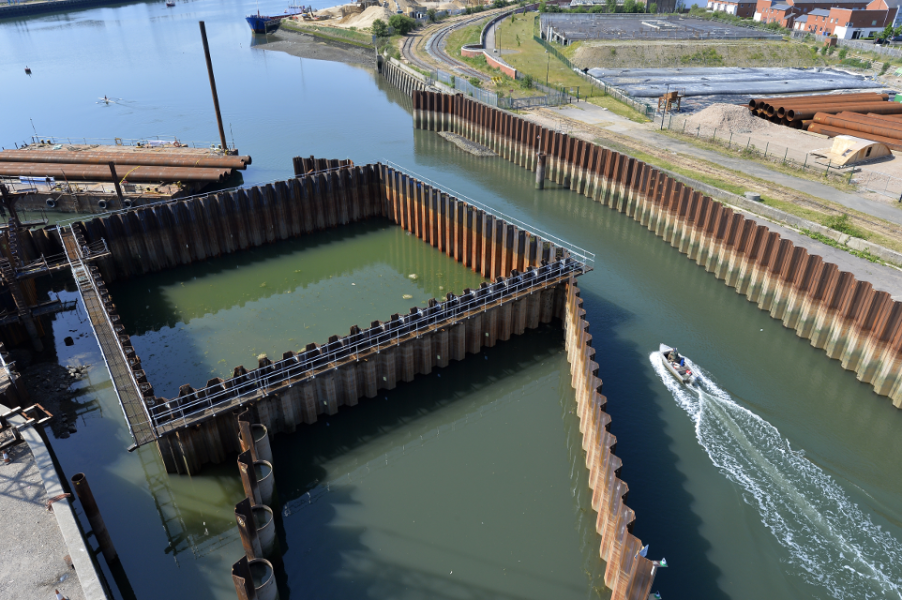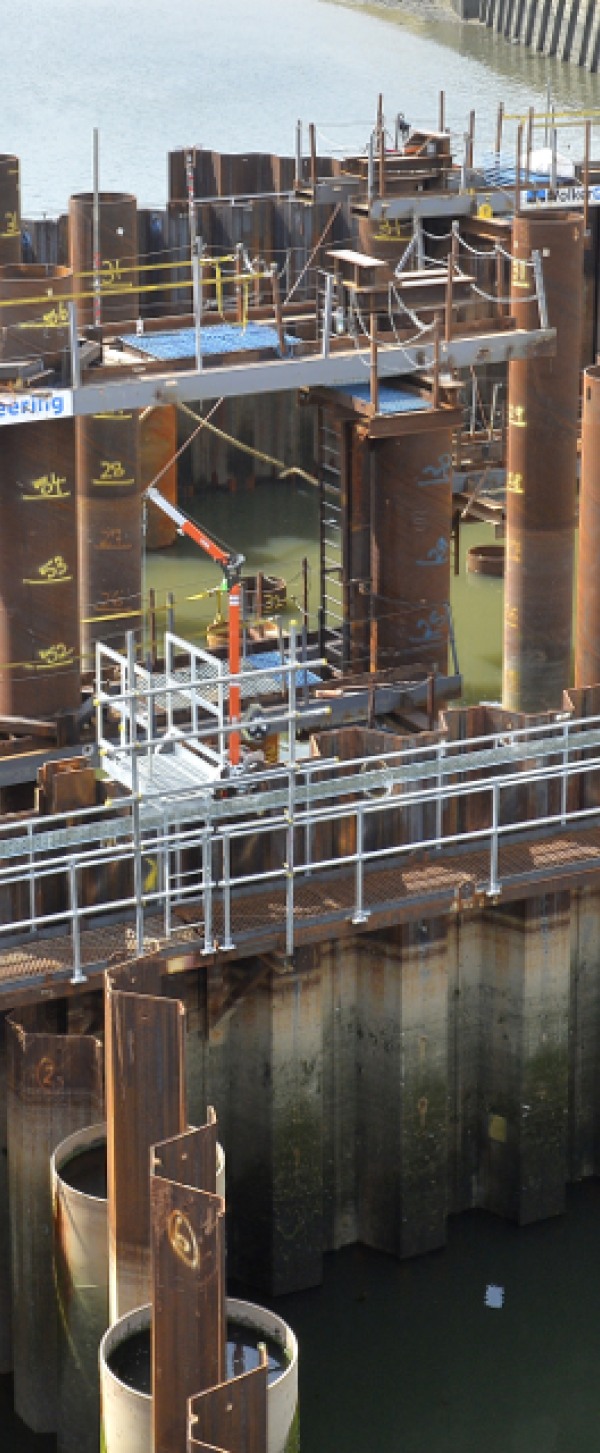
Ipswich Tidal Barrier
In January 2016 VolkerStevin began works on the £21million Ipswich Tidal Barrier project, as part of the Ipswich Flood Defence Management Scheme. The scheme will provide the central Ipswich area with protection from a tidal surge to a level of 1 in 300 years.
The project is being carried out by VBA, a joint venture between VolkerStevin, Boskalis Westminster and SNC-Lavalin’s Atkins business. The new tidal barrier gate will prevent surge tides and allow control of fluvial flow.
VolkerGround Engineering has played a central role in this project, designing and constructing a 29m by 29m sheet piled cofferdam, extending to 20.6m deep, to enable the construction and installation of the new floodgate.
The bearing piles installed within the cofferdam were up to 40.7m in length and 1,016mm in diameter. The piles were installed in two sections to allow for a land based crane, due to restricted working areas available.
As part of the project, the team also constructed extensive temporary works, including sheet piling for river diversion and scour protection made up of 64no. crimped pairs of AZ26-700 piles, all 19m in length. Additionally, a pre-made frame was designed and installed to position the piles accurately over water.
This project presented VolkerGround Engineering with geotechnical challenges. The team were required to make the pile design work in ground conditions which consisted of weak chalk to depths of 50m overlain with variable sand and handle and drive the tubular piles that required structural welding in situ.
The solution was to utilise a larger 400 tonne land based crawler crane rather than floating plant, as originally planned. The substantial cost of the crane was offset by the much greater efficiency that was achieved from land based plant.
Piling works were completed four weeks ahead of programme by using two conventional gates within the cofferdam.
In November 2017, the 22m wide tidal barrier gate was installed into the barrier structure and water testing was carried out in April 2018. Overall completion is scheduled for December 2018.
